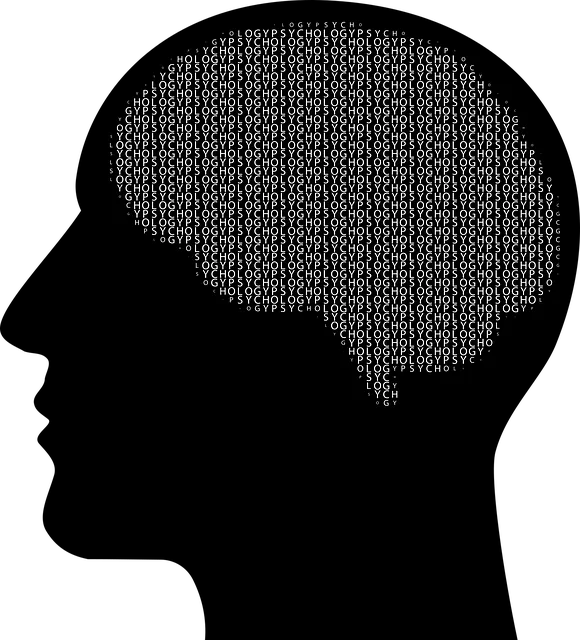The Kaiser Permanente behavioral health center in Parker has seen significant improvements in behavioral health through its RFM (Resilience, Flexibility, Mastery) principles integration. This holistic approach combines Mind Over Matter techniques into daily routines, empowering individuals to develop effective coping mechanisms. RFM fosters self-care practices and empathy within the community, enhancing mental health outcomes through resilience. The center's innovative strategy includes programs like Compassion Cultivation Practices for stress reduction and trauma support, creating safe spaces for learning and growth. This client-centric approach ensures relevant and impactful services through regular feedback mechanisms. Implementing Resilient Focused Mindfulness (RFM) has been a transformative success, teaching self-care practices and burnout prevention strategies, enhancing resilience, and improving overall well-being. Collaboration among healthcare professionals, administrators, and clients is crucial for tailoring RFM programs to address specific issues like depression, burnout, and emotional regulation.
In today’s fast-paced world, building resilience is vital for optimal well-being. This article explores the implementation of Resilient Factor Model (RFM) exercises at Kaiser Permanente’s behavioral health center in Parker. We delve into how RFM, a proven approach to enhance mental fortitude, is transforming patient care. From understanding its impact on behavioral health to effective implementation strategies, we uncover the benefits and provide tips for seamlessly integrating RFM programs within community centers, specifically focusing on the Kaiser Permanente behavioral health center in Parker.
- Understanding RFM and its Impact on Behavioral Health in Parker
- Kaiser Permanente's Approach to Building Resilience in Community Centers
- Effective Implementation Strategies for Resilience Exercises
- Benefits of RFM for Patients at the Behavioral Health Center
- Overcoming Challenges: Tips for Seamless Integration of RFM Programs
Understanding RFM and its Impact on Behavioral Health in Parker

In Parker, the implementation of RFM (Resilience, Flexibility, and Mastery) principles has significantly contributed to enhancing behavioral health at the local Kaiser Permanente center. RFM is a holistic approach that empowers individuals to navigate life’s challenges with resilience, fostering a sense of control and well-being. This method goes beyond traditional therapeutic practices by integrating Mind Over Matter Principles into daily routines, enabling individuals to develop coping mechanisms that are both effective and sustainable.
The impact of RFM is particularly notable in fostering self-care practices and empathy building strategies within the community. By focusing on resilience, individuals learn to adapt and grow from adverse experiences, leading to improved mental health outcomes. The Kaiser Permanente behavioral health center in Parker has recognized this potential and incorporated RFM exercises into their programs, providing a comprehensive framework for personal growth and enhanced emotional well-being.
Kaiser Permanente's Approach to Building Resilience in Community Centers

Kaiser Permanente, a leading healthcare organization, has pioneered an innovative approach to building resilience within its community centers, particularly focusing on behavioral health aspects. Their strategy involves integrating various mental health education programs and trauma support services designed to empower individuals with coping mechanisms and emotional strength. By hosting regular sessions at their Parker behavioral health center, they foster a sense of belonging and provide safe spaces for learning and growth.
One of the key initiatives is introducing Compassion Cultivation Practices, which encourage participants to develop self-awareness, empathy, and stress reduction techniques. These practices not only enhance overall well-being but also equip individuals with tools to navigate challenging situations. Kaiser Permanente’s holistic approach aims to strengthen communities by addressing mental health concerns proactively, ensuring a healthier and more resilient future for all.
Effective Implementation Strategies for Resilience Exercises

Implementing resilience exercises effectively involves a strategic approach tailored to the unique needs of a Kaiser Permanente behavioral health center in Parker. Firstly, Mental Wellness should be the core focus, ensuring activities cater to cognitive and emotional strengthening. Exercises like mindfulness meditation, stress management workshops, and positive affirmation practices can significantly enhance clients’ ability to cope with challenges.
Secondly, integrating Emotional Healing Processes through expressive therapies like art or music can unlock profound insights and facilitate communication. Encouraging open dialogue using Communication Strategies during group sessions builds a supportive environment, fostering deeper connections and understanding among participants. Regular feedback mechanisms ensure exercises remain relevant and impactful, aligning with the evolving needs of the diverse population served by the Parker behavioral health center.
Benefits of RFM for Patients at the Behavioral Health Center

At the Kaiser Permanente behavioral health center in Parker, incorporating Resilient Focused Mindfulness (RFM) into patient care has proven to be a game-changer. RFM is a powerful tool that not only enhances self-care practices but also plays a pivotal role in burnout prevention for individuals seeking emotional well-being promotion techniques. By teaching patients mindful strategies to navigate stress and challenge, RFM empowers them to build resilience, a critical component for maintaining mental health and overcoming life’s hurdles.
This therapeutic approach has shown remarkable results, enabling patients at the Kaiser Permanente behavioral health center Parker to develop coping mechanisms that foster emotional balance and overall well-being. Through regular practice, individuals learn to cultivate awareness, accept their emotions without judgment, and develop a more positive mindset, all of which contribute to improved mental agility and resilience in the face of adversity.
Overcoming Challenges: Tips for Seamless Integration of RFM Programs

Implementing RFM (Resilience, Flexibility, and Mindfulness) programs at a Kaiser Permanente behavioral health center in Parker can be a game-changer for enhancing client outcomes. However, seamless integration requires careful planning to overcome potential challenges. One key tip is to involve all stakeholders, including healthcare professionals, administrators, and even clients, in the design and execution process. This collaborative approach ensures that the programs meet the unique needs of the Parker community and align with the center’s mission.
Additionally, tailoring RFM exercises to address specific issues like depression prevention, burnout prevention, and emotional regulation can make them more impactful. For instance, mindfulness meditation sessions tailored for stress reduction can help clients manage anxiety, while resilience-building workshops can equip them with coping strategies for life’s challenges. By offering a diverse range of activities, the Kaiser Permanente behavioral health center in Parker can cater to various preferences and needs, fostering a more inclusive and effective therapeutic environment.
The implementation of RFM (Resilience, Flexibility, and Mindfulness) programs in behavioral health centers, as demonstrated by Kaiser Permanente’s initiatives in Parker, offers a promising approach to enhancing patient well-being. By integrating resilience-building exercises into community centers, these programs have the potential to significantly improve mental health outcomes for individuals seeking support at local Kaiser Permanente behavioral health centers in Parker. The effective strategies outlined in this article provide valuable insights for healthcare professionals aiming to seamlessly introduce RFM initiatives, ultimately fostering a more resilient and supportive environment for patients’ long-term success.






